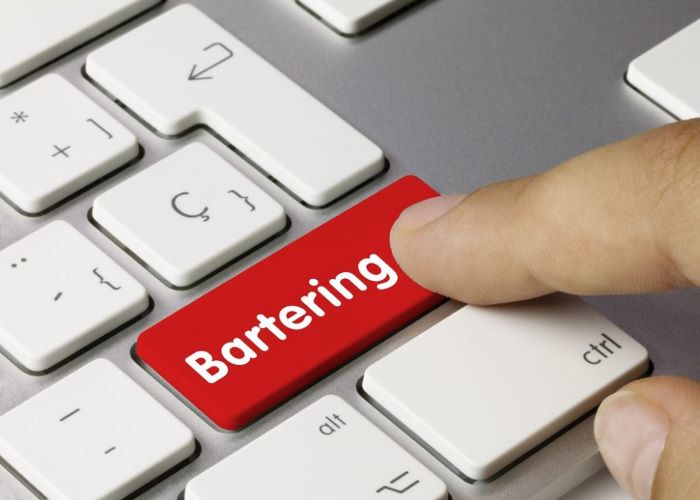Barter policy
What is Bartering?
Bartering is the act of trading one good or service for another without using a medium of exchange such as money. A bartering economy differs from a monetary economy in a variety of ways. The primary difference is that goods or services are exchanged immediately, and the exchange is reciprocal, meaning it’s a fair trade, with each party getting the thing they want or need in an even amount to what they are offering in exchange.

Uses of Bartering
Bartering is generally conducted directly between two parties; however, it may be done multilaterally through a trade exchange. Developed countries generally don’t engage in barters unless they’re done in conjunction with the standard monetary system of the country, and even then, it is only used in rare instances.
In times of monetary crisis or collapse, a barter system is often established as a means to continue the trading of goods and services and to keep a country functioning. This may occur if physical money is simply not available, or if a country sees hyperinflation or a deflationary spiral.
Advantages of Bartering
There are a number of reasons why a barter economy or being able to barter is beneficial. As mentioned above, there may be times where cash is not readily available, but goods or services are.
Bartering allows individuals to get what they need with what they already own. If, for example, an individual needs lumber to put an addition onto their home but lacks funds to buy the lumber, then they may be able to use the barter system to supply their needs – for example, exchanging furniture they don’t need for the needed lumber.
Such a deal, of course, needs to be negotiated by both parties. It is a reciprocal, mutually-beneficial arrangement that doesn’t involve the exchange of cash or another monetary medium (such as a credit card).
Disadvantages of Bartering
The problem with a barter economy is its inefficiency. The first potential problem is – using the example above – the person seeking lumber may not be able to find a supplier of lumber who is in need of something the lumber seeker can provide.
The second potential problem comes with trying to guarantee fair exchanges. How does one calculate, for example, a fair exchange rate of eggs for a television set? A monetary economy makes the exchange of goods and services more easily manageable.